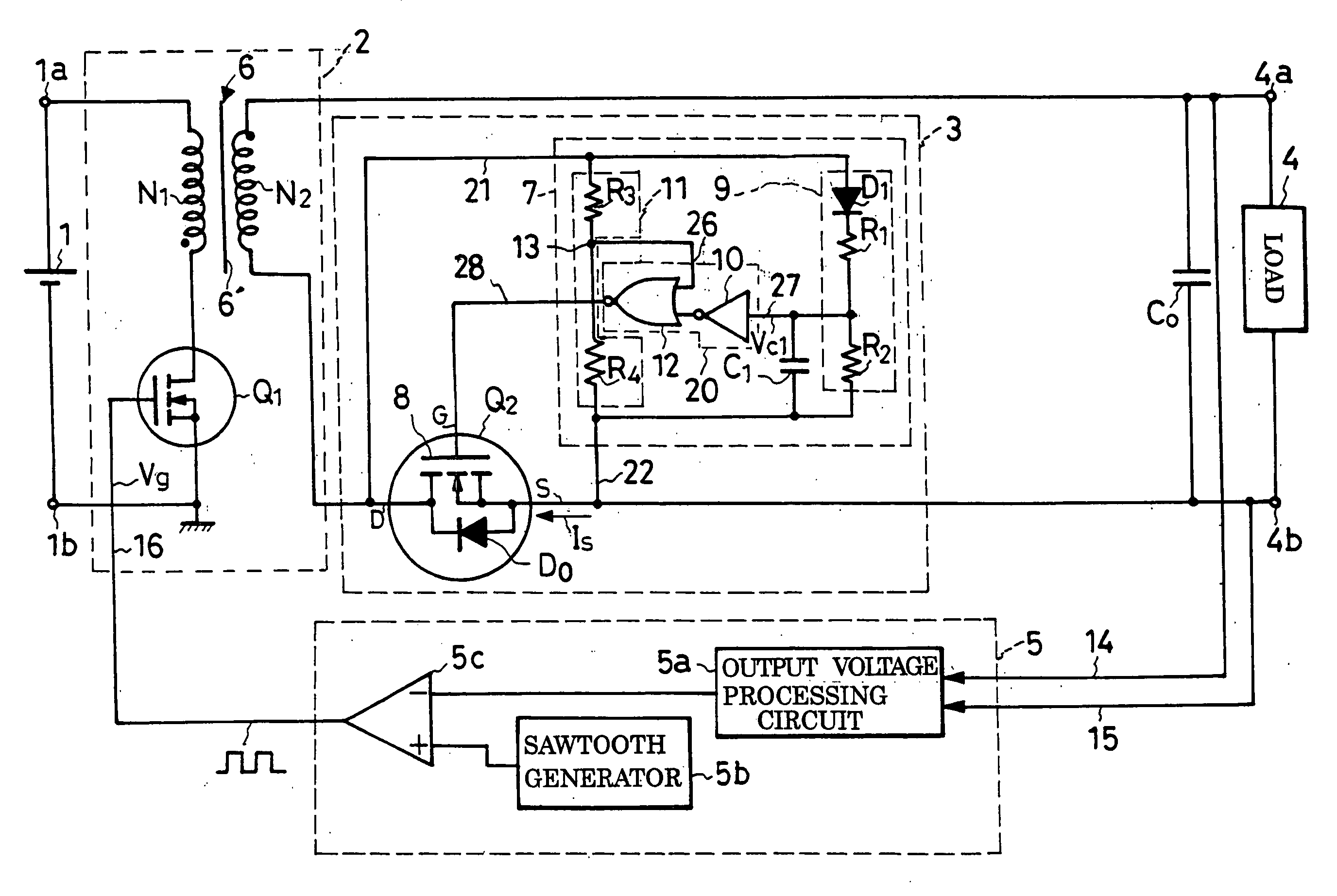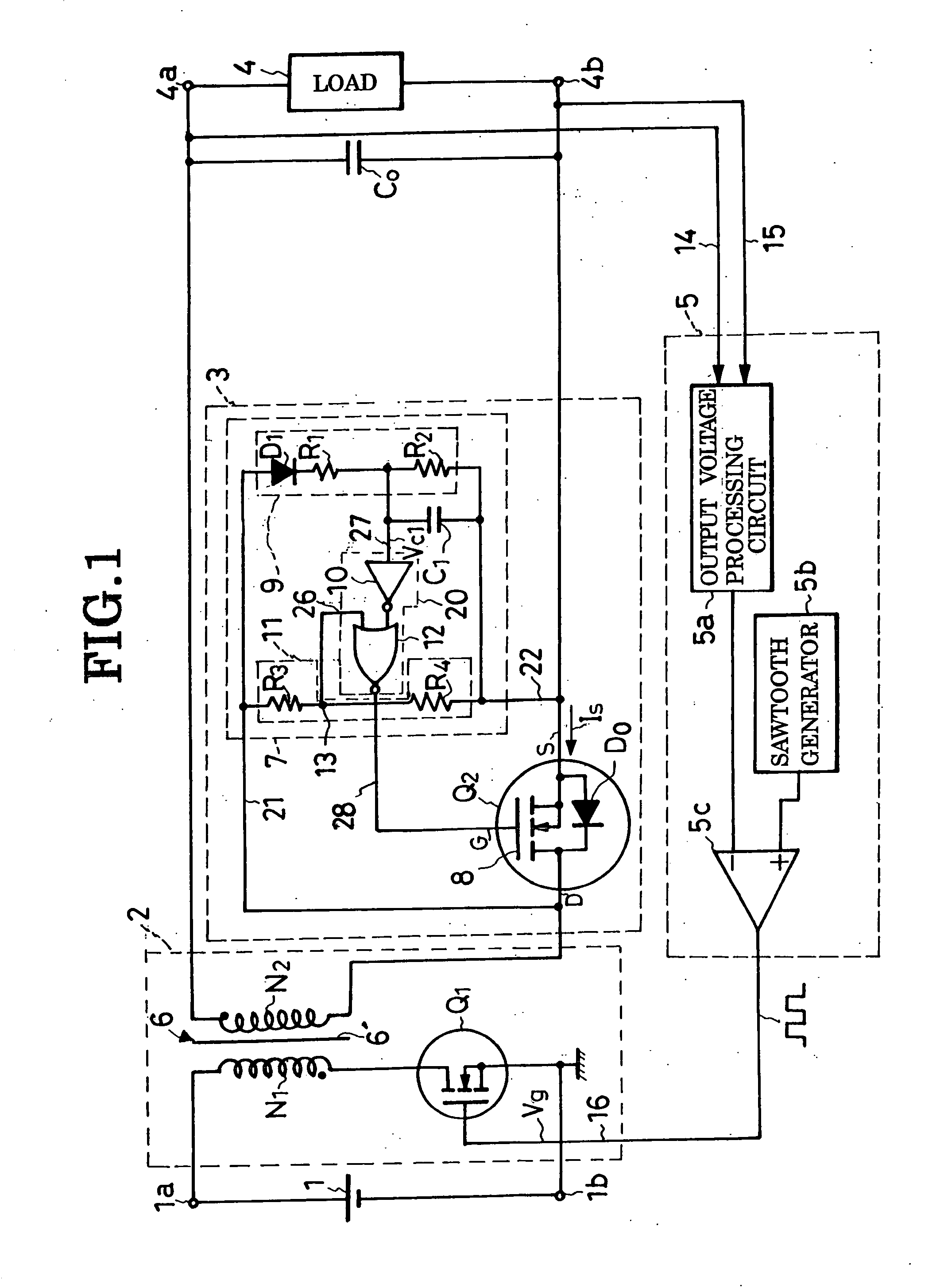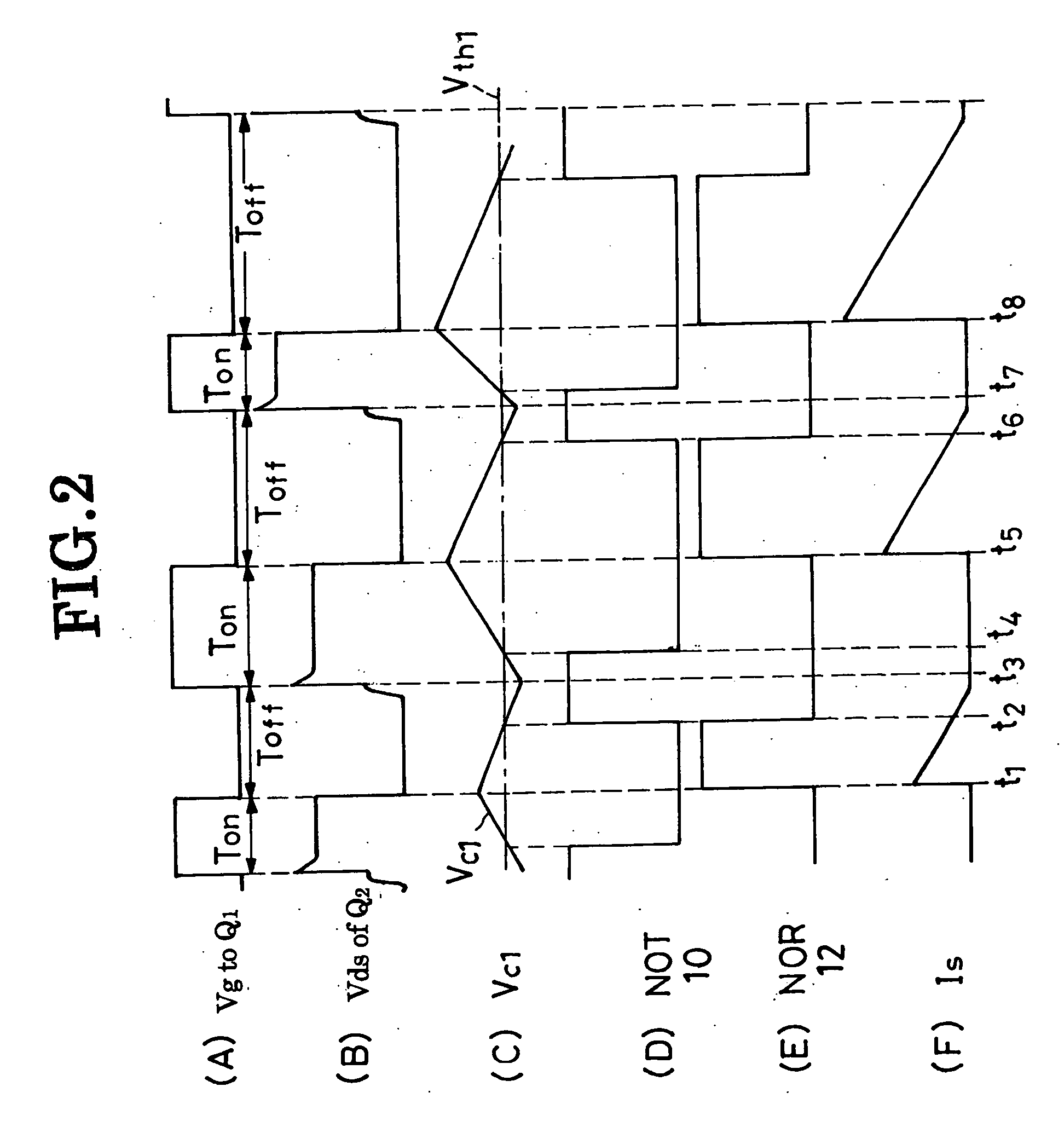Switching-mode power supply having a synchronous rectifier
a technology of synchronous rectifier and power supply, which is applied in the direction of electric variable regulation, process and machine control, instruments, etc., can solve the problems of noise production, difficulty in exact synchronization of the conducting period of the rectifying diode, and increase the difficulty of turning on the synchronous rectifier switch. achieve the effect of saving power supply from noise problems and high efficiency
- Summary
- Abstract
- Description
- Claims
- Application Information
AI Technical Summary
Benefits of technology
Problems solved by technology
Method used
Image
Examples
embodiment
of FIG. 3
[0076] The second preferred form of switching-mode power supply shown in FIG. 3 incorporates a modified synchronous rectifier circuit 3a and is identical with the FIG. 1 embodiment in all the other details of construction. The modified synchronous rectifier 3a differs from its FIG. 1 counterpart 3 only in its synchronous rectifier control circuit 7a, which in turn differs from its FIG. 1 counterpart 7 only in its charge / discharge circuit 9a.
[0077] The modified charge / discharge circuit 9a features a discharge circuit of a resistor R2′ and diode D2 interconnected in series, instead of the discharge resistor R2 of the FIG. 1 charge / discharge circuit 9. This discharge circuit is connected in parallel with the charge circuit comprised of the diode D1 and resistor R1 which are interconnected in series as in the FIG. 1 embodiment. The charge diode D1 and discharge diode D2 are opposite in polarity.
[0078] The second preferred form of switching-mode power supply operates like that...
PUM
 Login to View More
Login to View More Abstract
Description
Claims
Application Information
 Login to View More
Login to View More - R&D
- Intellectual Property
- Life Sciences
- Materials
- Tech Scout
- Unparalleled Data Quality
- Higher Quality Content
- 60% Fewer Hallucinations
Browse by: Latest US Patents, China's latest patents, Technical Efficacy Thesaurus, Application Domain, Technology Topic, Popular Technical Reports.
© 2025 PatSnap. All rights reserved.Legal|Privacy policy|Modern Slavery Act Transparency Statement|Sitemap|About US| Contact US: help@patsnap.com



